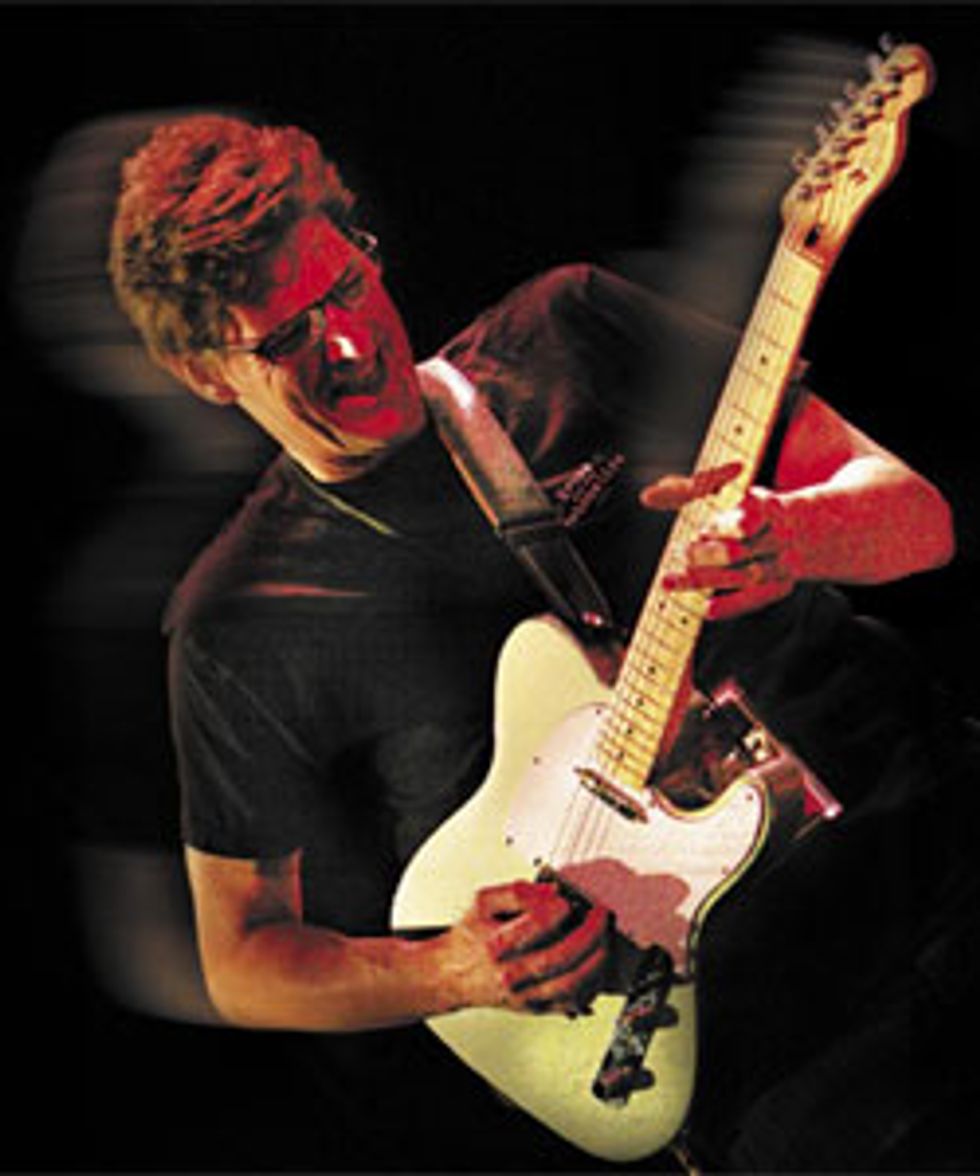 |
|
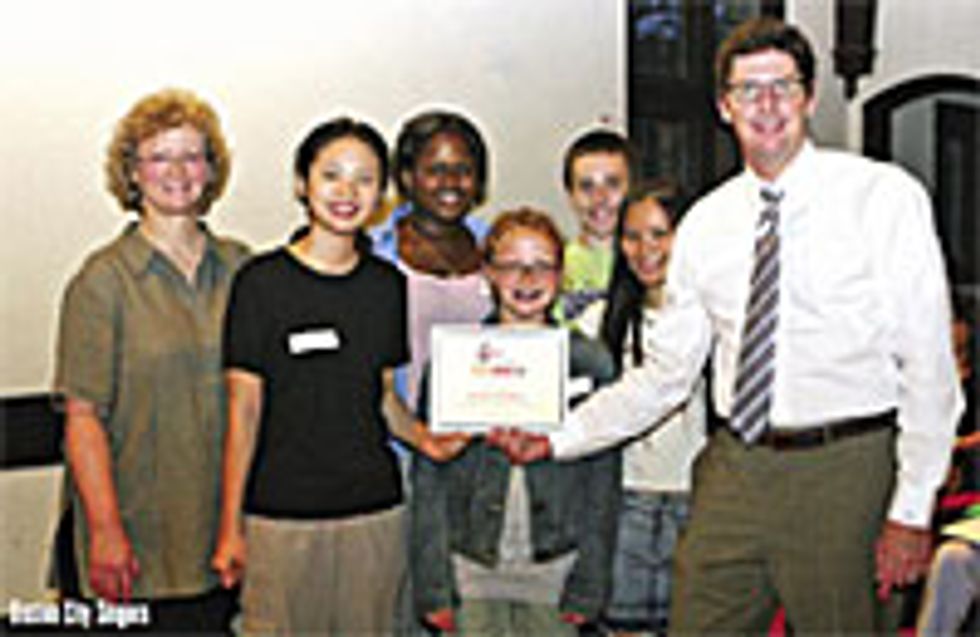 Ernie grew up in Norwood, Massachusetts, son of a successful local auto dealer. His father, Ernie Boch Sr., was somewhat of a local celebrity, known for his colorful commercials advertising the family chain of dealerships. Though the younger Ernie did eventually follow his father’s footsteps in the automotive business, he also nurtured a love of music that led him to play in numerous high school and college bands, culminating with Ernie attending the highly esteemed Berklee School of Music. It was through this combination of business acumen and his love of music that provided the impetus for Ernie pursuing the philanthropic side of the musical world.
Ernie grew up in Norwood, Massachusetts, son of a successful local auto dealer. His father, Ernie Boch Sr., was somewhat of a local celebrity, known for his colorful commercials advertising the family chain of dealerships. Though the younger Ernie did eventually follow his father’s footsteps in the automotive business, he also nurtured a love of music that led him to play in numerous high school and college bands, culminating with Ernie attending the highly esteemed Berklee School of Music. It was through this combination of business acumen and his love of music that provided the impetus for Ernie pursuing the philanthropic side of the musical world. 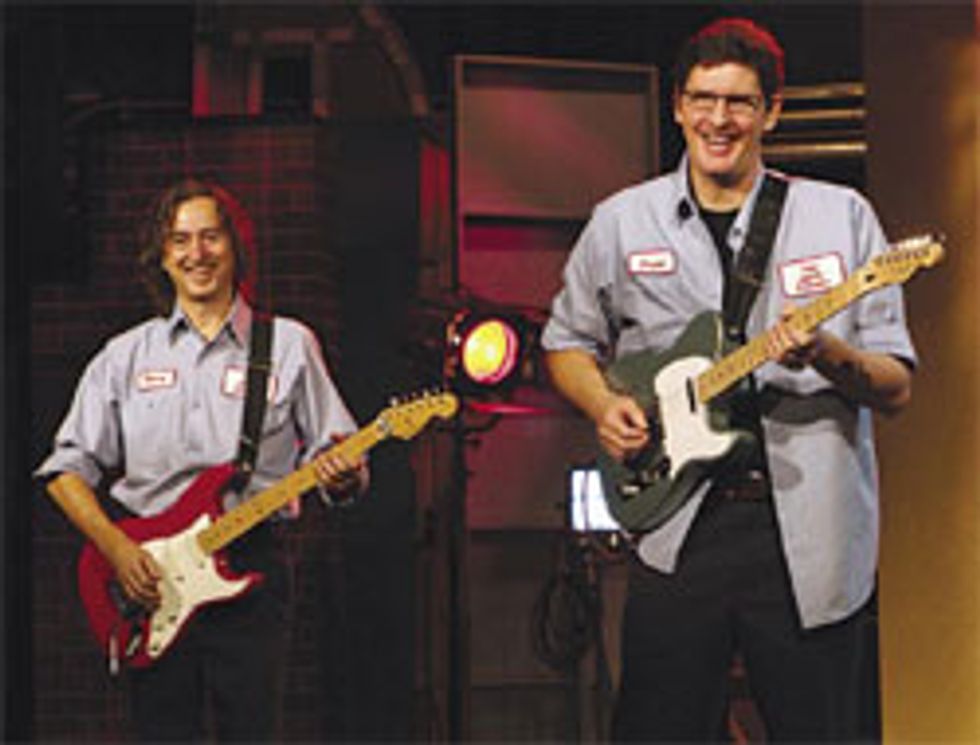 In the Community: Music Drives Us
In the Community: Music Drives Us Like most people, Ernie Boch had never really planned on directing a charitable foundation – the opportunity simply seemed to present itself at the right time, and his love of music took over. It began with a chance meeting with John Sykes, one of the architects of MTV. Ernie’s original interest was in working with VH1’s Save the Music foundation, a national program dedicated to restoring instrumental music education in America’s public schools. After some preliminary discussions with the organization, Ernie decided to act on a more regional level, starting his own foundation entitled Music Drives Us – a clever reference to the successful business empire, which enabled him to realize the project.
“I didn’t want to raise any money until I proved this was a worthwhile thing,” Ernie recounts. Rather than relying on contributions to start his project, Ernie was willing to put $2 million of his own funds into the venture. Soon after establishing the organization’s funding, Ernie began producing PSAs to get the word out about Music Drives Us, and community groups rapidly began submitting grants. Since its inception, according to Ernie, Music Drives Us has given out hundreds of thousands of dollars to support various music initiatives. The foundation’s board meets once per quarter to distribute money to worthy causes. “Last round, 91 people applied for grants,” Ernie stated proudly.
| “To The Automatics are essentially a blues band with a rock n’ roll edge, able to move from jump blues to shuffles to cool Southern rock at any point in a set.” |
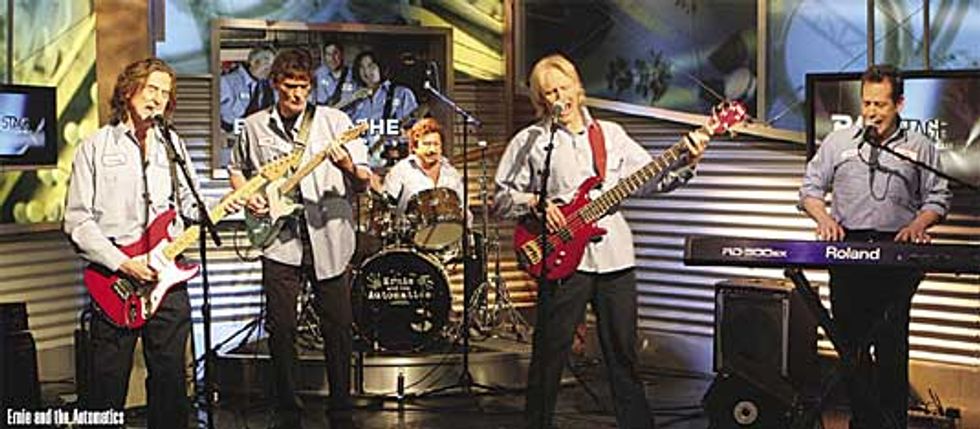
Music Drives Us breaks their grants down into four categories: providing musical instruments to community groups, grants for live performances, organizational grants for musical education facilities and individual scholarships to outstanding musicians who want to continue their education through camps, programs and colleges. In a unique twist aimed at perpetuating the cycle of education, the scholarship requires recipients to devote a specific amount of time each month parlaying their knowledge to a younger generation of musicians.
One example of Music Drives Us’ efforts to promote music in the public realm was in providing a $10,000 grant for advertising and publicity to the Boston Blues Foundation – an organization that aims to keep the blues culture and spirit alive through free Boston-area concerts – specifically to support efforts to bring younger people into the blues scene. Ernie is quick to point out that the grants aren’t limited to non-profit organizations, but merely worthy endeavors. “It’s the public and private sector. If someone comes up with a great musical idea and the board thinks it’s a good idea, we’re gonna give them the dough.” Music Drives Us also doesn’t limit their philanthropy to rock and blues. One such example is the Boston City Singers, an ensemble of young people from a variety of ages and backgrounds who meet weekly to rehearse choral arrangements of both traditional and popular songs. They recently received a $7,000 grant to facilitate music lessons and community concerts. “The Boston City Singers is an amazing group of kids,” Ernie says. “They meet once a week and it keeps kids off the streets.”
On Stage: Ernie and the Automatics
All of this is in part supported by Ernie’s personal love of music, and the band he has assembled, Ernie and the Automatics. For the Automatics, Ernie drew from some of Boston’s most successful musicians. “I’ve got two retired rock stars, and two professional guys that play all the time,” said Ernie. The band features the musical talents of Sib Hashian and Barry Goudreau – both former members of Boston – along with Tim Archibald and Brian Maes who had played with Barry in the post-Boston project, RTZ.
The Automatics are essentially a blues band with a rock n’ roll edge, able to move from jump blues to shuffles to cool Southern rock at any point in a set. The music largely centers on the guitar interplay between Ernie and Barry, resulting in a dynamic sound. When Ernie plays, his enjoyment of the music shines through with his raw Tele tone and bluesy note choice; Barry’s guitar often stands in sharp contrast, with a more “uptown” feel and a deep, thick tone that never gives up its identity as a Stratocaster. This mixture has led Ernie and the Automatics to build a following in the Boston area – “We’ve got a little buzz going on,” Ernie reveals.
Much like his foundation, forming a band was never Ernie’s intention. The band initially originated from his burgeoning friendship with Sib. “Through some people, I met Sib Hashian, the original drummer from the band, Boston. I talked to him and helped him out with a play he was doing, and we quickly became friends,” Ernie recalls. When Sib realized that Ernie played guitar, he kept after him to set up a jam, despite Ernie’s reluctance. After some time, he finally acquiesced and agreed to meet Sib for a jam session.
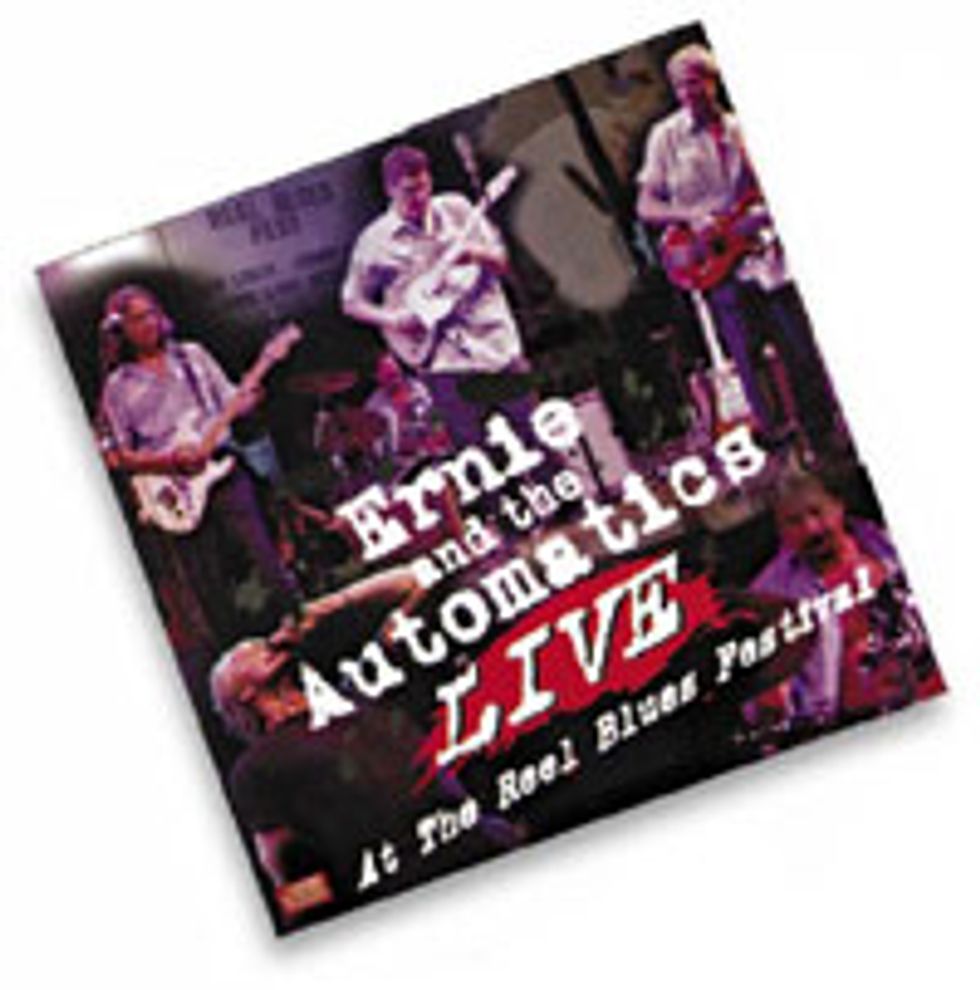 Ernie recounts the story: “So I show up at this place, and discover that this is not just a place where you sit in – this is a $250 a ticket major fundraising event for the Doug Flutie Jr. Foundation for Autism. The place is packed, and I say to Sib, ‘What did you get me into?’ He told me not to worry about it, so I went to tune up with the band. The only person on stage that I knew was the sax player, from a couple of events around town. Realize that I hadn’t played out in probably 15 years; at that point, I was beginning to get really nervous.
Ernie recounts the story: “So I show up at this place, and discover that this is not just a place where you sit in – this is a $250 a ticket major fundraising event for the Doug Flutie Jr. Foundation for Autism. The place is packed, and I say to Sib, ‘What did you get me into?’ He told me not to worry about it, so I went to tune up with the band. The only person on stage that I knew was the sax player, from a couple of events around town. Realize that I hadn’t played out in probably 15 years; at that point, I was beginning to get really nervous. “The leader of the house band came over and asked me what I wanted to play. ‘How about a blues,’ I said, and we agreed on Mustang Sally, in the key of C. The plan was to come up for the third tune. I made Sib agree to come up with me, but halfway through the second tune, he took off for the bathroom. When the third song started, Sib still wasn’t there, and the guitarist called me up. I told him I couldn’t go up there, and when Sib returned, he asked me what I was doing just standing there. I told him we missed the tune, but before I know it, Barry Goudreau is standing on one side of me, with Sib on the other, and they’re both urging me to go out on stage and play. Eventually Brad Delp [former lead singer for Boston] comes over as well, and says, ‘Hey, Ernie, I heard you’re sitting in. Its gonna be fun, right?’ The band on stage ended without me joining them – but then they see half of Boston standing next to the stage, and start calling us all up. There was no way I was going up there, but the guys went onstage and played three killer Boston tunes. The crowd went crazy, because these guys hadn’t played this stuff together in 30 years. When they struck the final note, the crowd went absolutely nuts, and the guys again turned to me and told me to get up there. I literally grabbed my guitar and ran. I ran! I was so nervous, I just took off and told them I had to get up early in the morning. So even though that was a nightmare, that’s essentially how I met those guys.”
These days, Ernie isn’t so reluctant to hop on stage and jam. Though he left that first night with his pride slightly bruised, he also came away with the friendship of Sib and Barry, who would later become members of his band. The three began jamming together, adding Barry’s RTZ bandmate Tim Archibald on bass – “When I was at Berklee, he was the hottest bass player around,” Ernie notes. For vocals, Ernie again drew from Barry and Tim’s RTZ experience, grabbing vocalist Brian Maes, who doubles on keyboards, to complete the group.
The band started off with a bang – opening for Los Lobos and guitar virtuoso Johnny A at the Reel Blues Festival in Cape Cod. “Our first gig was in front of 2,400 people with only four rehearsals!,” Ernie recounts. The Reel Blues Festival proved to be a worthy and relevant first gig for Ernie and his band – it is an annual film and music festival held to raise money to help older musicians with various needs such as healthcare. In addition, the money raised is also used to help burgeoning independent filmmakers.
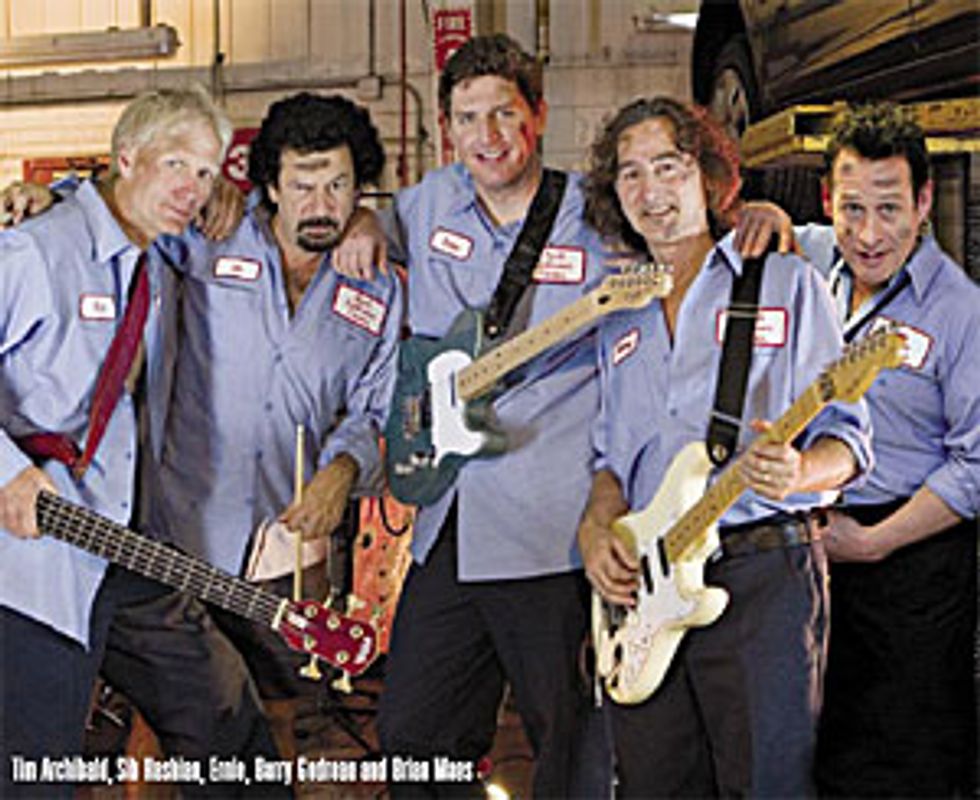 Since that first performance in August of 2006, Ernie and the Automatics have gone on to open for blues legend B.B. King and release a live CD and DVD of their performance at the Reel Blues Festival, along with an additional live CD entitled The Body Shop Sessions, and a live DVD, Sunday with Liz Walker. The group took to the studio in May to record a CD of original songs.
Since that first performance in August of 2006, Ernie and the Automatics have gone on to open for blues legend B.B. King and release a live CD and DVD of their performance at the Reel Blues Festival, along with an additional live CD entitled The Body Shop Sessions, and a live DVD, Sunday with Liz Walker. The group took to the studio in May to record a CD of original songs. It is through these CDs and DVDs, along with other merchandise, such as t-shirts, that Ernie and the Automatics help support his philanthropic efforts. “All of the money from our merchandise, available through the band’s website [ernieandtheautomatics. com] goes to Music Drives Us,” Ernie explains. The band also uses their growing buzz in the Boston area to raise awareness through public service announcements and television appearances, meaning that Ernie Boch’s various endeavors, both musically and financially, are helping share the joy of music.
Ernie Boch Jr. is a true anomaly in the musical community. Instead of being content with his accomplishments in the business world, Ernie has chosen to use his skills and resources to spread music education across the New England area, in addition to pursuing his own dream of performing the music he grew up with. If every region had an Ernie, and subsequently a foundation like Music Drives Us, there would be a whole lot more music to go around.
Interested in hearing Ernie and the Automatics this summer? You can catch up with the guys at the following venues:
| |||||||||
musicdrivesus.com
ernieandtheautomatics.com






![Rig Rundown: Russian Circles’ Mike Sullivan [2025]](https://www.premierguitar.com/media-library/youtube.jpg?id=62303631&width=1245&height=700&quality=70&coordinates=0%2C0%2C0%2C0)







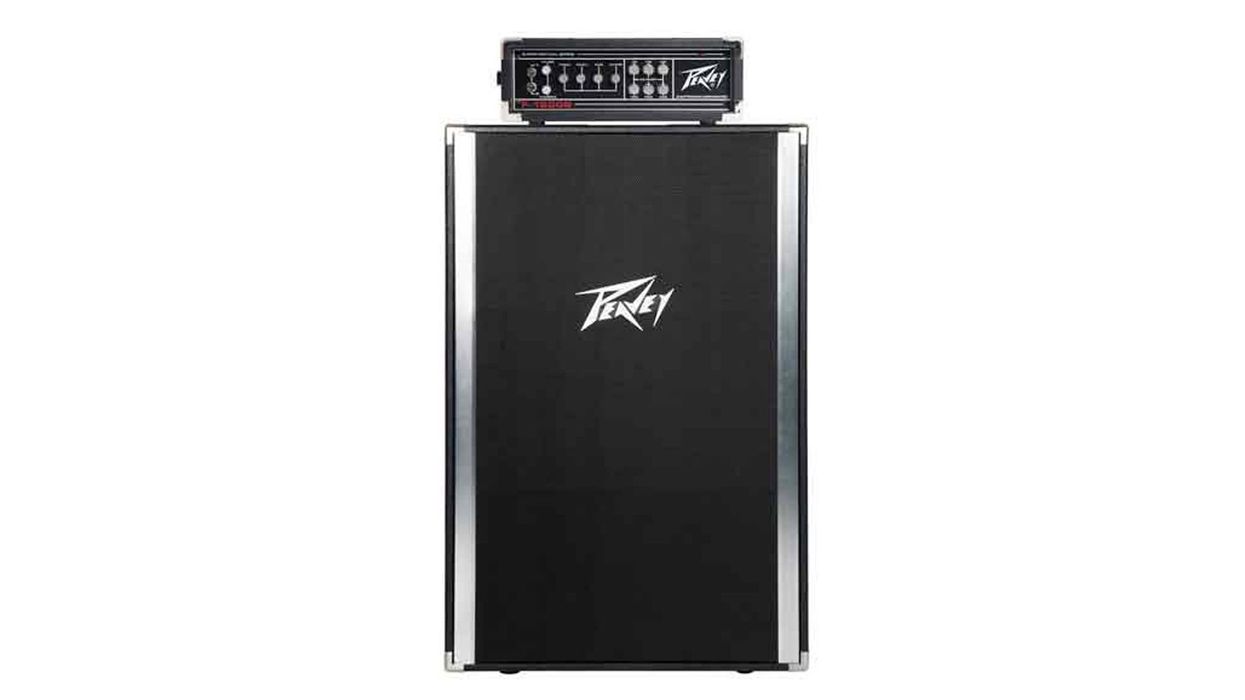
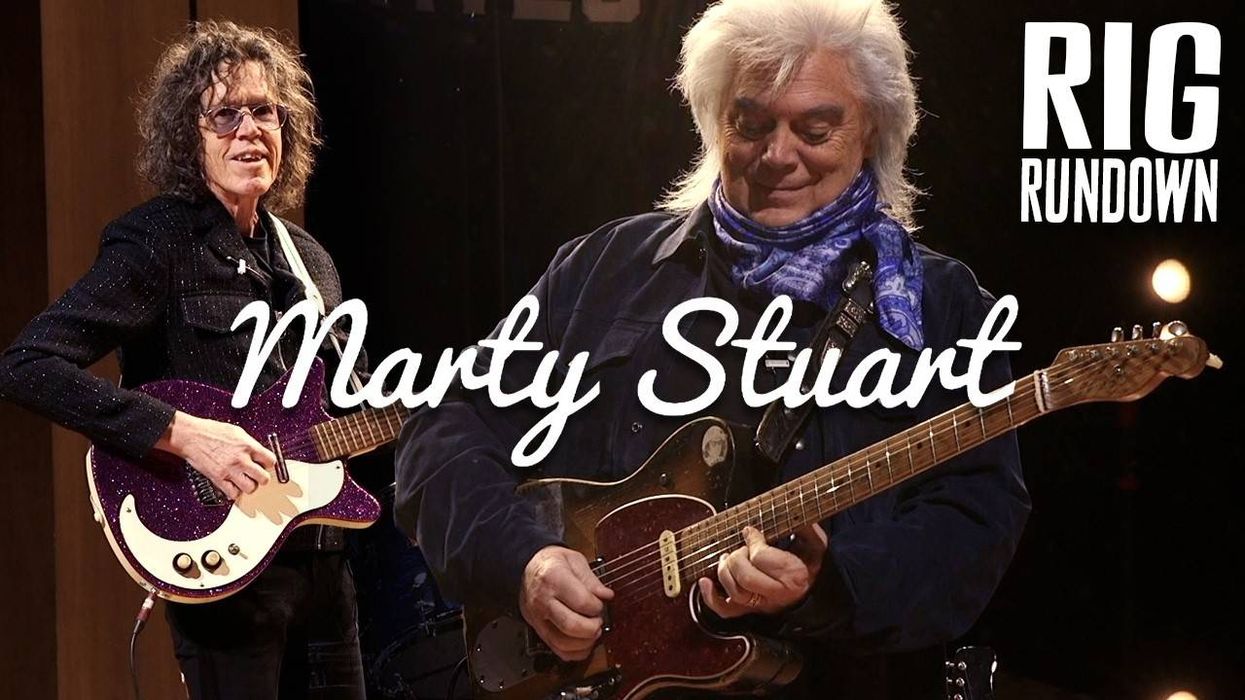

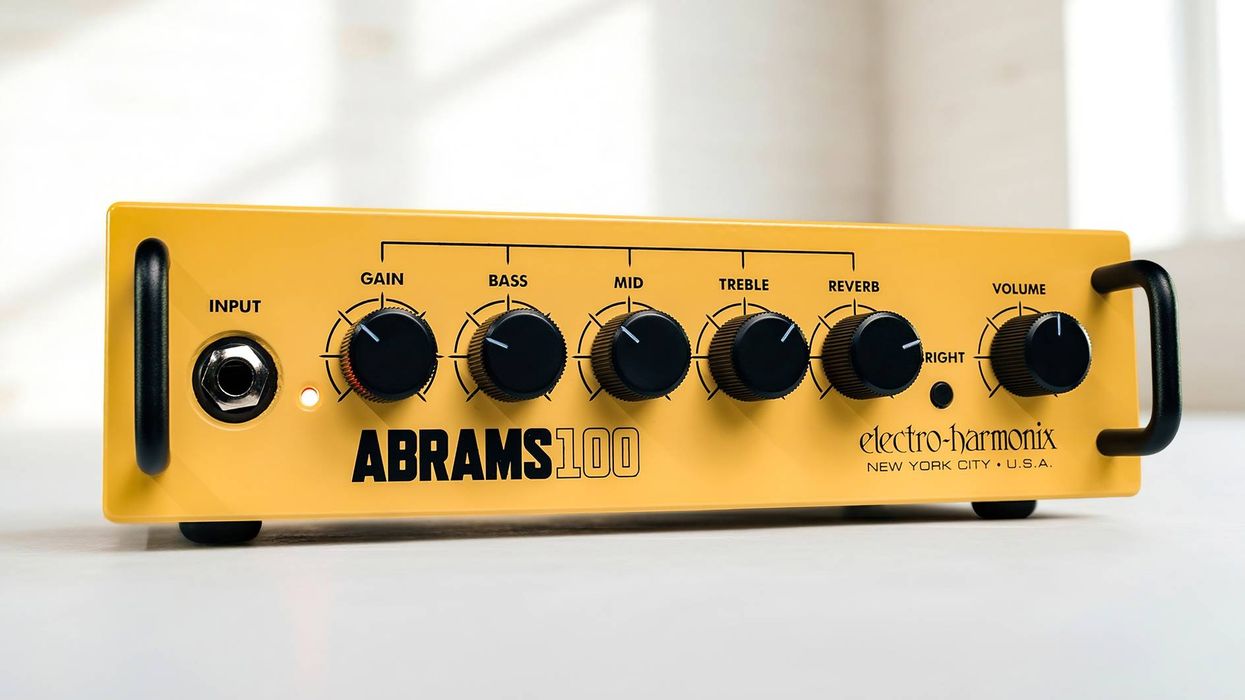
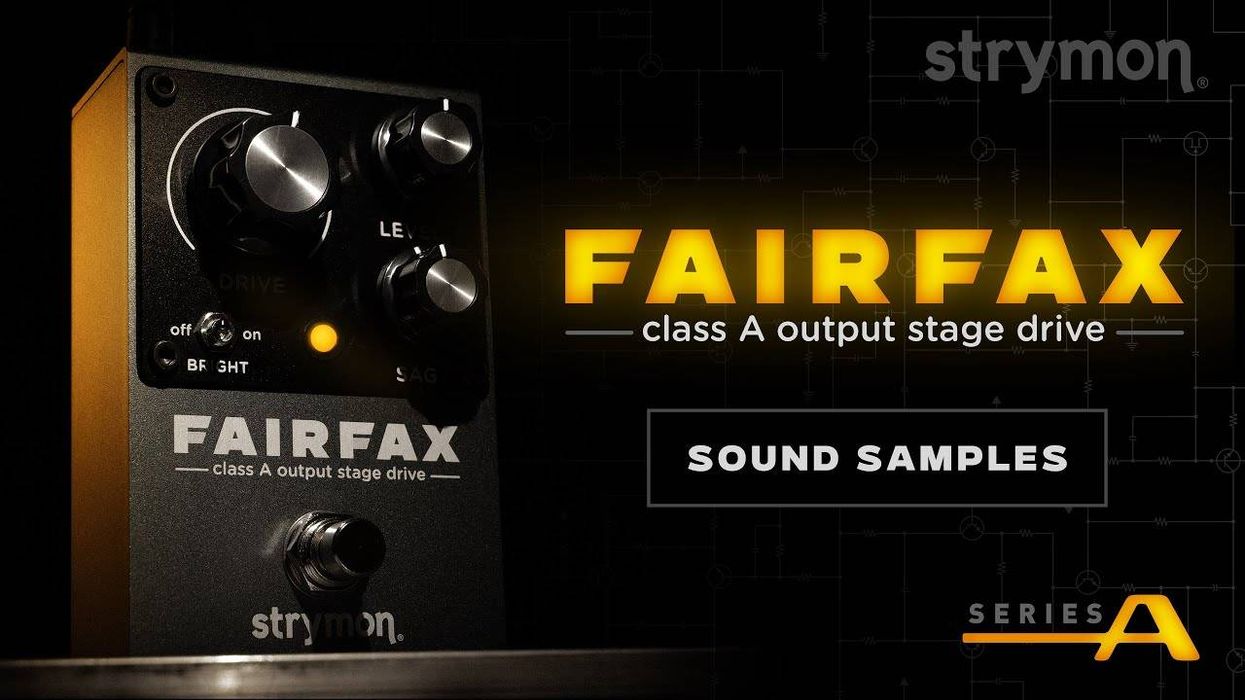










![Rig Rundown: AFI [2025]](https://www.premierguitar.com/media-library/youtube.jpg?id=62064741&width=1245&height=700&quality=70&coordinates=0%2C0%2C0%2C0)




















 Zach loves his Sovtek Mig 60 head, which he plays through a cab he built himself at a pipe-organ shop in Denver. Every glue joint is lined with thin leather for maximum air tightness, and it’s stocked with Celestion G12M Greenback speakers.
Zach loves his Sovtek Mig 60 head, which he plays through a cab he built himself at a pipe-organ shop in Denver. Every glue joint is lined with thin leather for maximum air tightness, and it’s stocked with Celestion G12M Greenback speakers.











